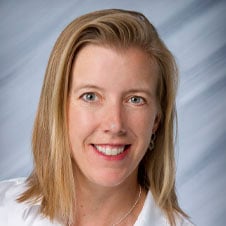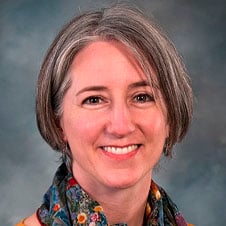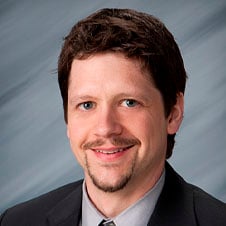Confluence Health in North Central Washington has created a leadership book club that isn’t just about tea and sympathy—it also helps physicians and other health professionals fine-tune the skills they need to reduce burnout, learn how to live out their organization’s values, and improve job satisfaction in their teams.
Leadership assessment and support was defined as a priority, helping physicians to further connect to the Confluence Health values while also connecting with colleagues and fellow leaders. One of the small leadership groups that was created to support this need at Confluence Health is a leadership “book” club that is held each quarter to expand on leadership qualities and information for anyone at the health system. The first session was held March 16.
This is important because leadership is a key pillar of the AMA Joy in Medicine™ Health System Recognition Program, which is designed to help health systems improve physician satisfaction and reduce their levels of burnout. Confluence Health earned silver-level distinction in 2023.
And while more work is needed, Confluence Health saw a drop in their burnout rate from 46.4% in 2021 to 37% in 2023. That is below the nationwide burnout rate of 53% that was reported by the AMA Organizational Biopsy®.
“Leading in health comes with countless challenges,” said Galen Sorom, MD, an internist and physician leader at Confluence Health who recently took the reins of the book club.
“Identifying key traits, and offering opportunities to learn and discuss, helps bring focus to the growth and learning,” she said.
Confluence Health has one hospital with two campuses and 15 clinics, comprising more than 300 physicians and 170 nonphysician providers. Confluence Health is a member of the AMA Health System Program, which provides enterprise solutions to equip leadership, physicians and care teams with resources to help drive the future of medicine.
Here are the benefits of Confluence Health’s leadership book club.
An environment for learning
Dr. Sorom said the book club’s “collegial setting” provides a low-pressure way to develop “areas of leadership that we really need strength in.”
In a session this spring on teamwork, the group read The Secrets of Great Teamwork, by Martine Haas, PhD, and Mark Mortensen, PhD, and listened to “Coaching for Leaders,” with Dave Stachowiak, which is a management podcast. Topical discussions followed.
Makrina Shanbour, MD, a hospitalist and director of provider experience at Confluence Health in Wenatchee, Washington, attended and said she enjoyed talking with colleagues and thinking about leadership skills in new ways.
“I am on a learning journey and appreciate the opportunity to learn with my partners and discuss how we can put new knowledge and ideas together to make work better for our people,” Dr. Shanbour said. “It was helpful to discuss the barriers to teamwork that other departments are facing, and to share stories and ideas for moving forward.”
Learn more about what Confluence is doing to ease physician burnout by boosting staff training.
Creating a care team built to last
Jesse McCarrell, OD, is an optometrist at Confluence Health and said growth and turnover offer new challenges to leaders in medicine. He hopes that by honing his leadership skills, he would be able to “build a team that sees a broader purpose and feels a sense of self-worth and an appreciation for what they do as a technician.”
McCarrell said doctors and nonphysician providers, especially leaders, can sometimes need help with the parts of their jobs that weren’t included in their training.
“Many of us are very focused on our work and patient load and do not have the training in leadership and team building,” McCarrell said.
Dr. Sorom said all Confluence Health physicians are eligible to attend the book club meetings, which are held quarterly in 60–90-minute sessions, either in person or online. Nonphysician providers also can join, and they are planning to expand the opportunity to other leaders as well to further strengthen connections and learning.
“We have heard that even if participants can’t attend the meetings, they do enjoy the readings and podcasts as a learning and growth opportunity,” she said.
Another session, happening this month, focuses on accountability and trust.
“We hope that learning about leadership, and connecting with colleagues, on these topics will help prevent burnout,” Dr. Sorom said, noting they will evaluate the impact of the book club on burnout later as the group grows.
For more reading recommendations, the AMA has put together a list of 10 physician memoirs that offer inspiring accounts of life in medicine.
Meanwhile, for nonfiction recommendations, here are eight great books hand-picked by doctors for your reading list. And for medical students and physicians who are more interested in reading fiction, here are five fantastic novels doctors recommend.
Nurturing flexibility, collaboration
Research has shown that leaders’ behavior directly influences the well-being and job satisfaction of who they manage.
Dr. Shanbour said one key component of the efforts to reduce burnout was lessening physicians’ in-basket burdens. She said that staff are able to effectively respond to 70% of patient portal inquiries at Confluence Health, reducing the amount of time physicians must spend on such messages.
Part of that is enhancing teamwork within “our own teams,” Dr. Shanbour said, noting that within the book club they discussed “how individual experience is not enough for a successful team, how we need to have balanced confidence within the team, have a clear road map with our goals and values, be flexible by understanding the strengths and weaknesses of our partners and develop psychological safety so that we benefit from everyone’s perspectives.”
“We discussed how we can apply these concepts in our own departments and workgroups,” she added.
Reducing physician burnout is a critical component of the AMA Recovery Plan for America’s Physicians.
Far too many American physicians experience burnout.
That's why the AMA develops resources that prioritize well-being and highlight workflow changes so physicians can focus on what matters—patient care.
To learn more and earn CME, explore the AMA STEPS Forward® toolkit on cultivating leadership.







